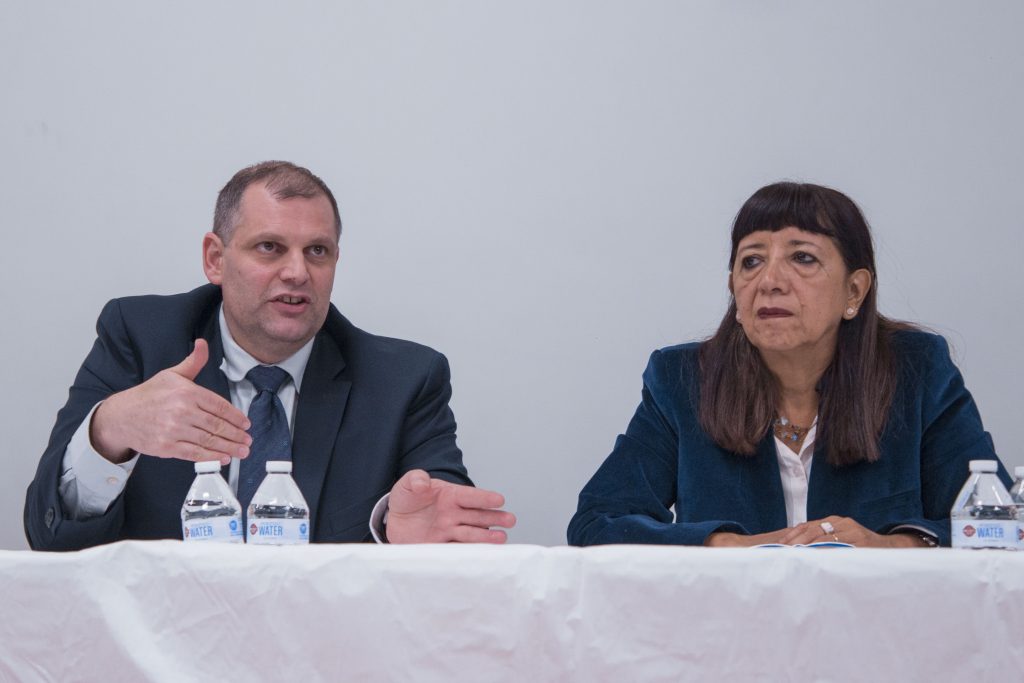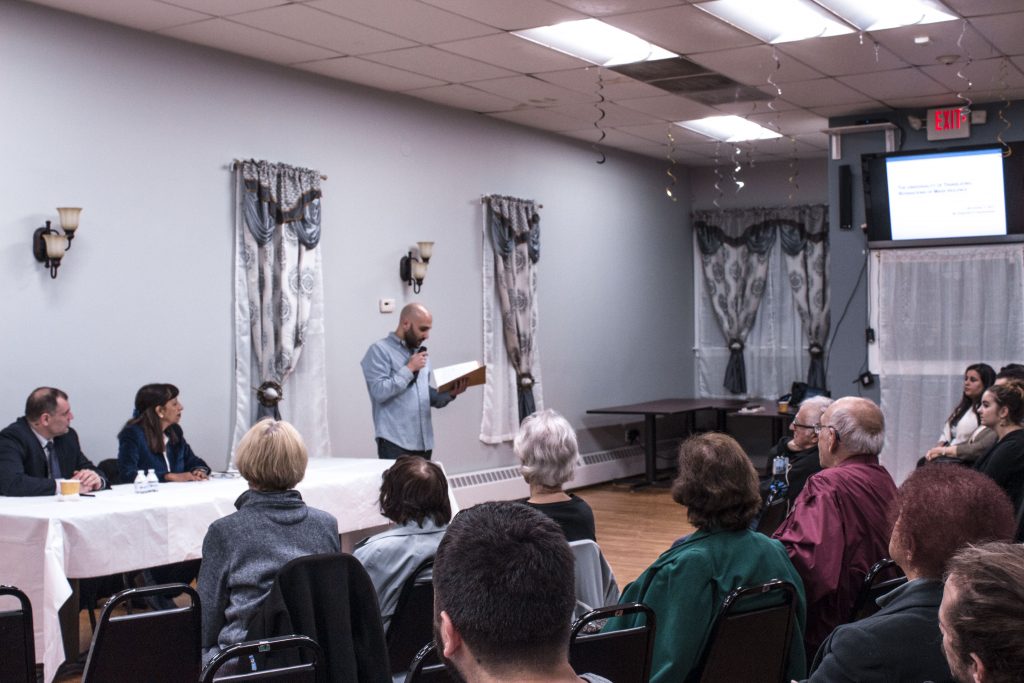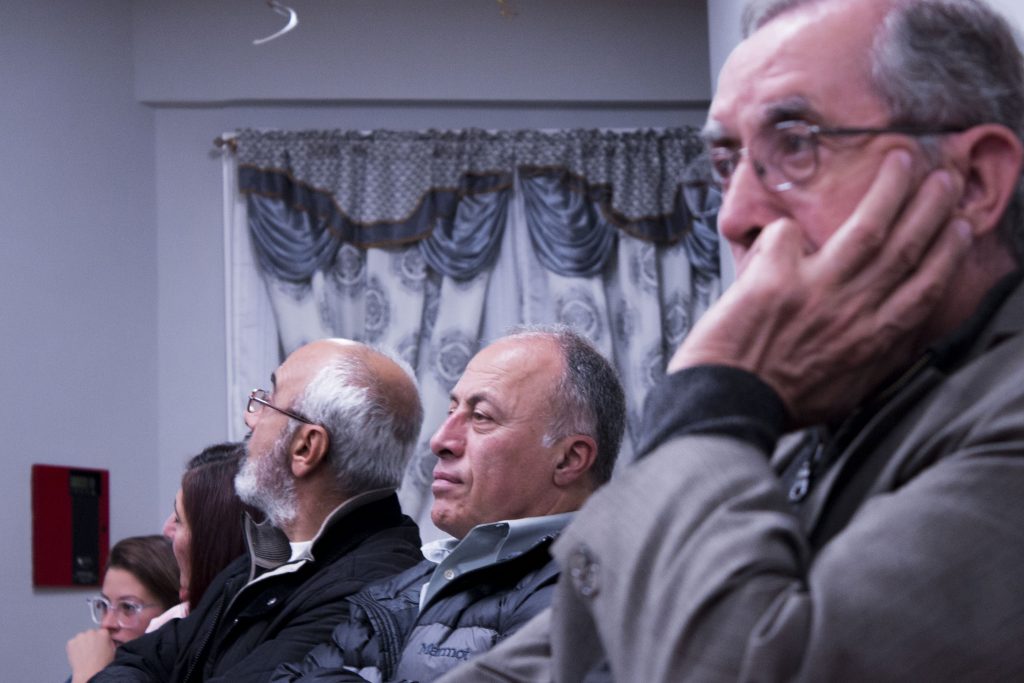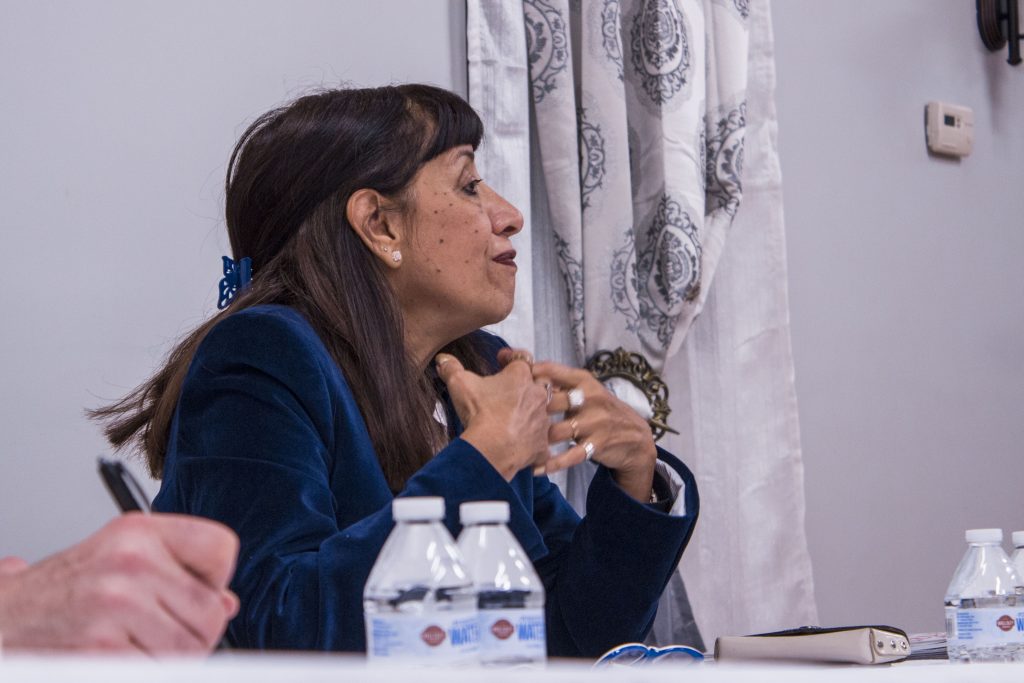WATERTOWN, Mass. (A.W.)—”The Universality of Translating Reparations for Mass Violence,” a discussion on the inevitable questions that arise when translating a text like “Resolution With Justice: Reparations for the Armenian Genocide,” took place at the Armenian American Social Club in Watertown, Mass., on Nov. 1. The event, hosted by the Armenian Weekly, was also livestreamed on the newspaper’s Facebook page.

After brief introductory comments by the Armenian Weekly’s editor, Rupen Janbazian, the floor was opened to the speakers: Dr. Henry C. Theriault, chair of the Armenian Genocide Reparations Study Group (AGRSG) and one of the authors of “Resolution with Justice: Reparations for the Armenian Genocide,” and Alejandra Patricia Karamanian, an Argentina-based translator, who was responsible for translating the text into Spanish.

“Resolution with Justice” is the result of an independent study initially made possible by a grant from the Armenian Revolutionary Federation (ARF). Research was started in 2007 by the AGRSG, and the final report was released in 2015.
The focus of the evening was a discussion of the inevitable complexities that arise when translating such a powerful text, including at what point translation becomes an obligation to humanity.
Prefacing Karamanian’s talk on the nuances of translating such a text, Theriault emphasized the importance of demonstrating the universal need for a text such as this. “One of the core issues with the Reparations report…was that we weren’t writing for an Armenian audience,” Theriault said in his talk, “and we weren’t writing about Armenian issues only. Everything we wrote could be adapted for other cases of genocide, mass violence, displacement, and so forth.”
“We wanted this to be both an Armenian work and a universal work. And so the concepts that we use were explicitly tied to Western political theory, international law, the history of different philosophical traditions—so any educated global reader could have some connection to it.”

The need for universality, Theriault argued, is important because the Armenian Genocide is part of a much larger narrative: human rights abuses that have transpired throughout the twentieth century, many of them not yet been atoned for. Theriault expressed hope that this work will inspire other groups to act.

Karamanian provided an overview on the technicalities and philosophical questions that arose during the process of translation, and outlined the universal elements embedded into the report. Following the discussion, the floor was opened to a vibrant Q&A session.
Watch the livestream of the event below.